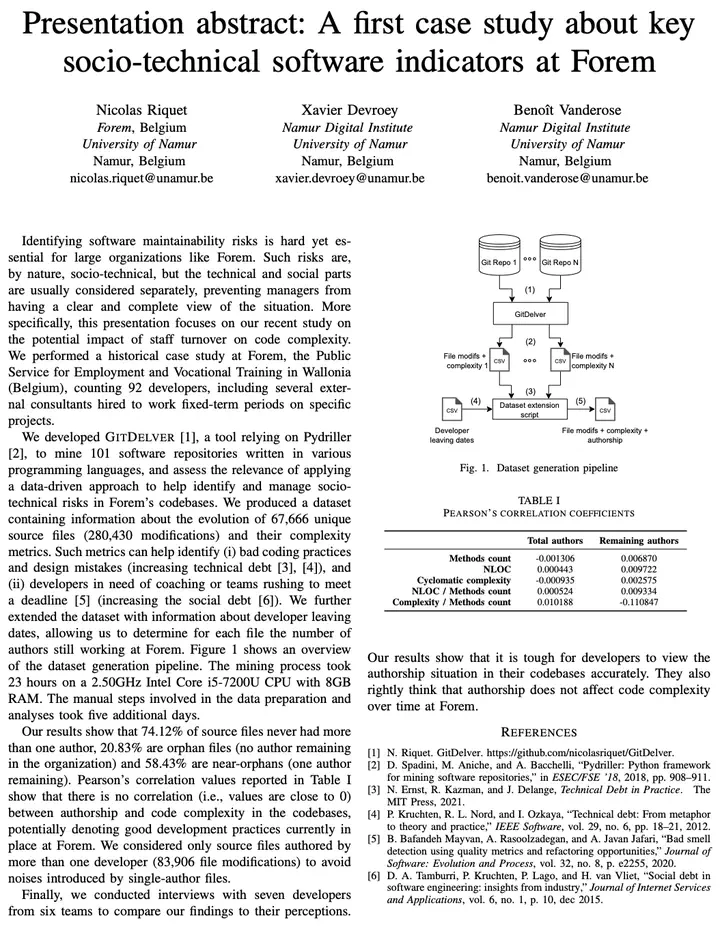Presentation abstract : A first case study about key socio-technical software indicators at Forem

Abstract
Identifying software maintainability risks is hard yet essential for large organizations like Forem. Such risks are, by nature, socio-technical, but the technical and social parts are usually considered separately, preventing managers from having a clear and complete view of the situation. More specifically, this presentation focuses on our recent study on the potential impact of staff turnover on code complexity. We performed a historical case study at Forem, the Public Service for Employment and Vocational Training in Wallonia (Belgium), counting 92 developers, including several external consultants hired to work fixed-term periods on specific projects.
Type
Publication
20th Belgium-Netherlands Software Evolution Workshop, BENEVOL ‘21